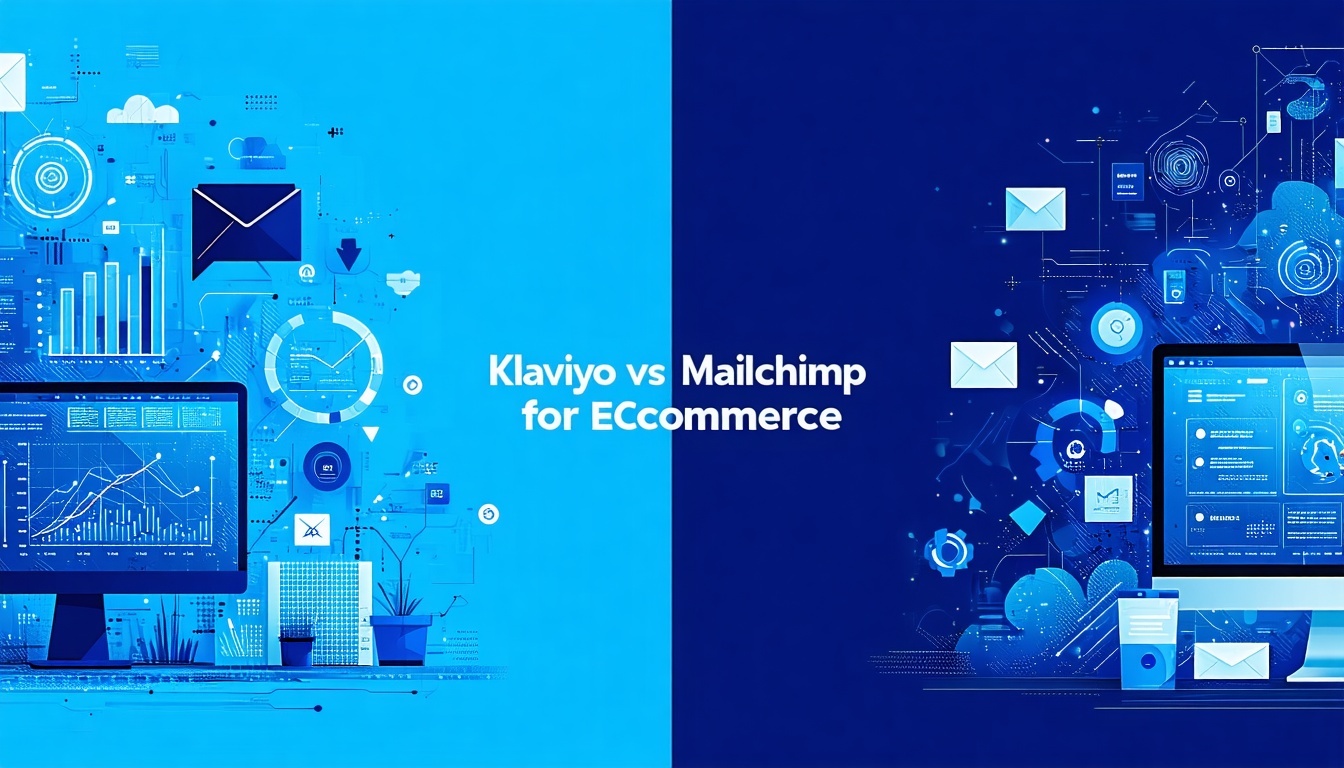Discover the Best Fit: Klaviyo vs Mailchimp for Ecommerce

Why Compare Klaviyo Vs Mailchimp
If you’re running an online store, you’ve probably heard the debate about Klaviyo vs Mailchimp for Ecommerce. Both platforms promise to boost your email marketing game, but which one really delivers what you need? You’re in the right place to discover where each platform shines, and how an AI-powered alternative might serve you even better.
Key Features To Note
When you dive into Klaviyo and Mailchimp, you’ll find some overlapping features, but also several key distinctions. Here’s a quick look:
| Feature | Klaviyo | Mailchimp |
|---|---|---|
| Pricing Model | Tier-based, can get costly as your list grows | Tier-based with limited free plan |
| Automation Triggers | Predetermined, rule-based email and SMS flows | Basic drip campaigns and marketing workflows |
| Audience Segmentation | Detailed, but setup can be time-consuming | Straightforward segments, fewer customization layers |
| Real-Time Interventions | Lacks immediate, dynamic interactions | Primarily manual scheduling and basic triggers |
| Data Analytics | Granular analytics, though heavier on manual analysis | Clear dashboards but limited cross-store insights |
| AI-Driven Insights | Not fully integrated, mostly user-defined logic | Basic predictive analytics on certain plans |
Pros And Cons
You’ll want to weigh the benefits versus any potential deal-breakers before you commit.
Klaviyo Pros
- Deep segmentation capabilities for targeted email flows
- Solid eCommerce integrations, especially with Shopify
- Flexible automation templates
Klaviyo Cons
- Cost grows quickly as your subscriber list expands
- Rule-based logic can feel outdated if you’re craving real-time personalization
Mailchimp Pros
- User-friendly setup, perfect for quick launches
- Well-known brand with wide community support
- Basic free plan appeals to beginners
Mailchimp Cons
- Limited automation features for complex eCommerce flows
- Lack of advanced behavioral triggers and real-time outreach tools
Introducing RubyData As A Smarter Alternative
If you’re searching for something that goes beyond traditional rule-based triggers, RubyData.ai might be your missing piece. Unlike Klaviyo and Mailchimp, which often rely on static or scheduled automations, Ruby’s live intervention system activates dynamic 1:1 engagements based on your customer’s actual behavior in real time. Imagine catching someone the moment they’re about to abandon a cart, or offering a relevant upsell right when they browse a particular product category.
Why It Stands Out
- Proactive AI: RubyData’s Large Retail Model (LRM) observes full customer journeys across multiple retailers, then sends real-time nudges via website modals, SMS, or email.
- Effortless Setup: Installing the RubyData Shopify Plugin connects your store instantly and taps into broader eCommerce intelligence, so you can skip digging through spreadsheets.
- Flexible Pricing: You can try Ruby completely free for 30 days, then pay only for what you use, which is especially helpful if you’re unsure how fast your store will scale.
- Data Protection: All data is anonymized and stored securely, with transparent opt-in mechanisms. This aligns with GDPR, CCPA, and other major privacy regulations.
Where To Start
Comparisons like Klaviyo vs Mailchimp offer a good baseline, but you might find that dynamic, AI-powered options like RubyData give you more bang for your buck. If you’d like to explore a more affordable alternative that also streamlines real-time marketing interventions, you can read about a Mailchimp alternative for eCommerce or check out the broader list of the best ecommerce email automation platforms.
Ready to see it for yourself? Sign up for Ruby’s free trial, integrate your Shopify store, and watch how a proactive approach to marketing can drive immediate results. If you’ve ever felt frustrated setting up complex rules in Klaviyo or scheduling the same email blasts in Mailchimp, Ruby’s live intervention might just be the change you need. Let me know how it goes, and happy automating!
Try it for free
Try Ruby for free for 30 days and afterwards only pay per usage, risk-free.
Schedule Call
.svg)

